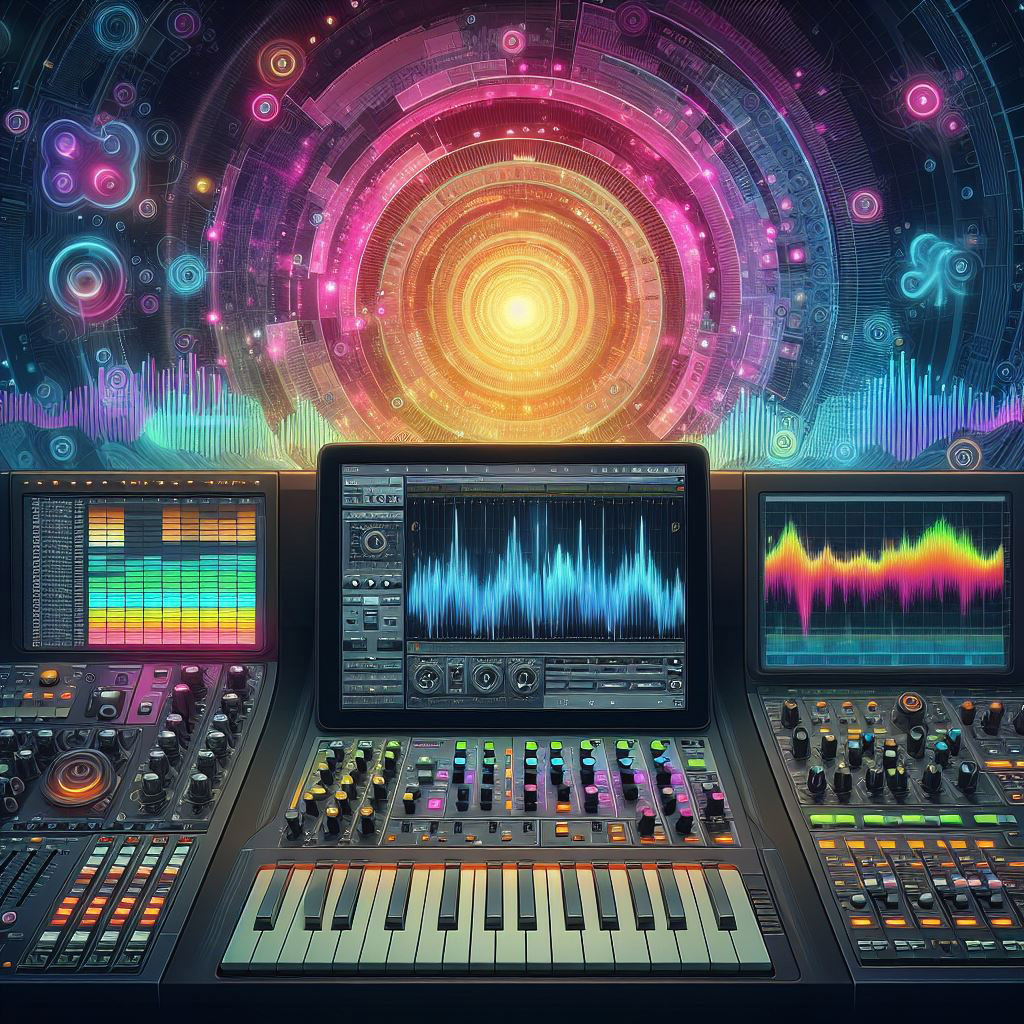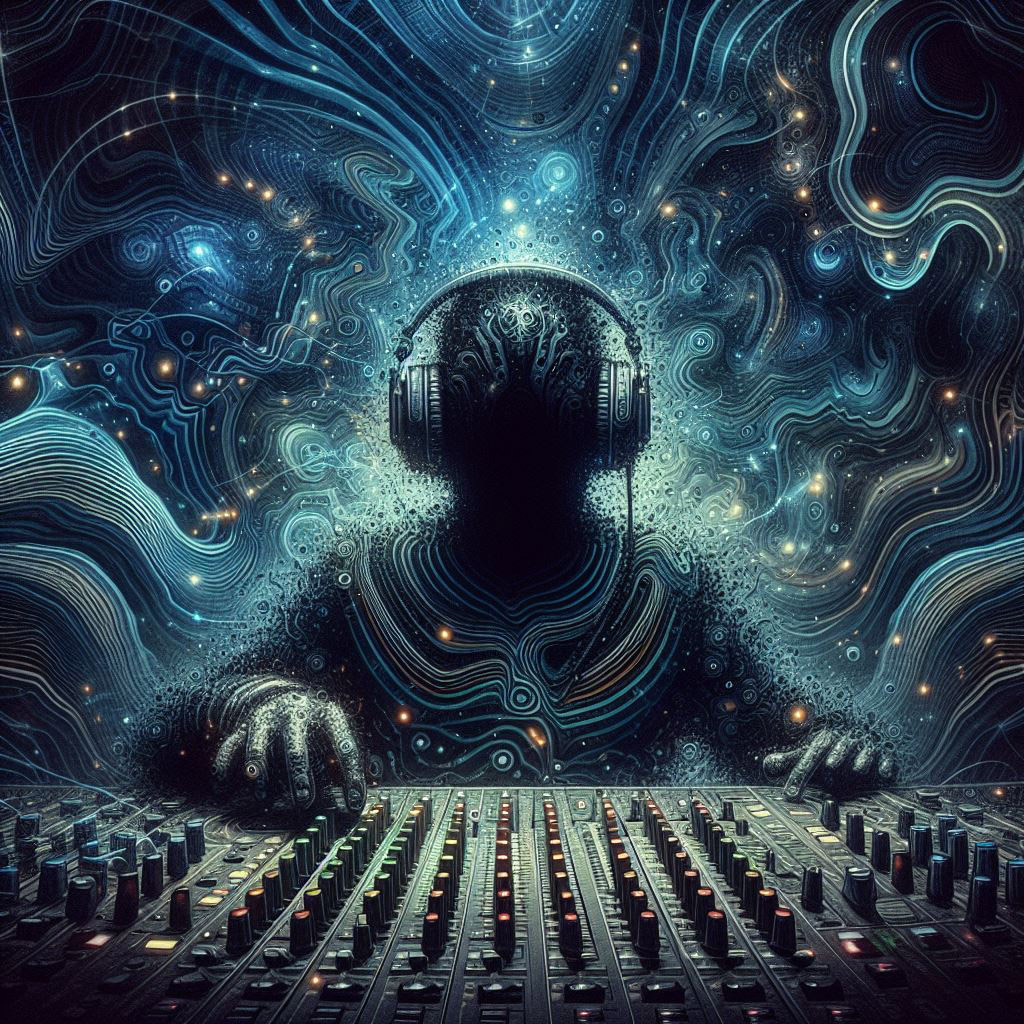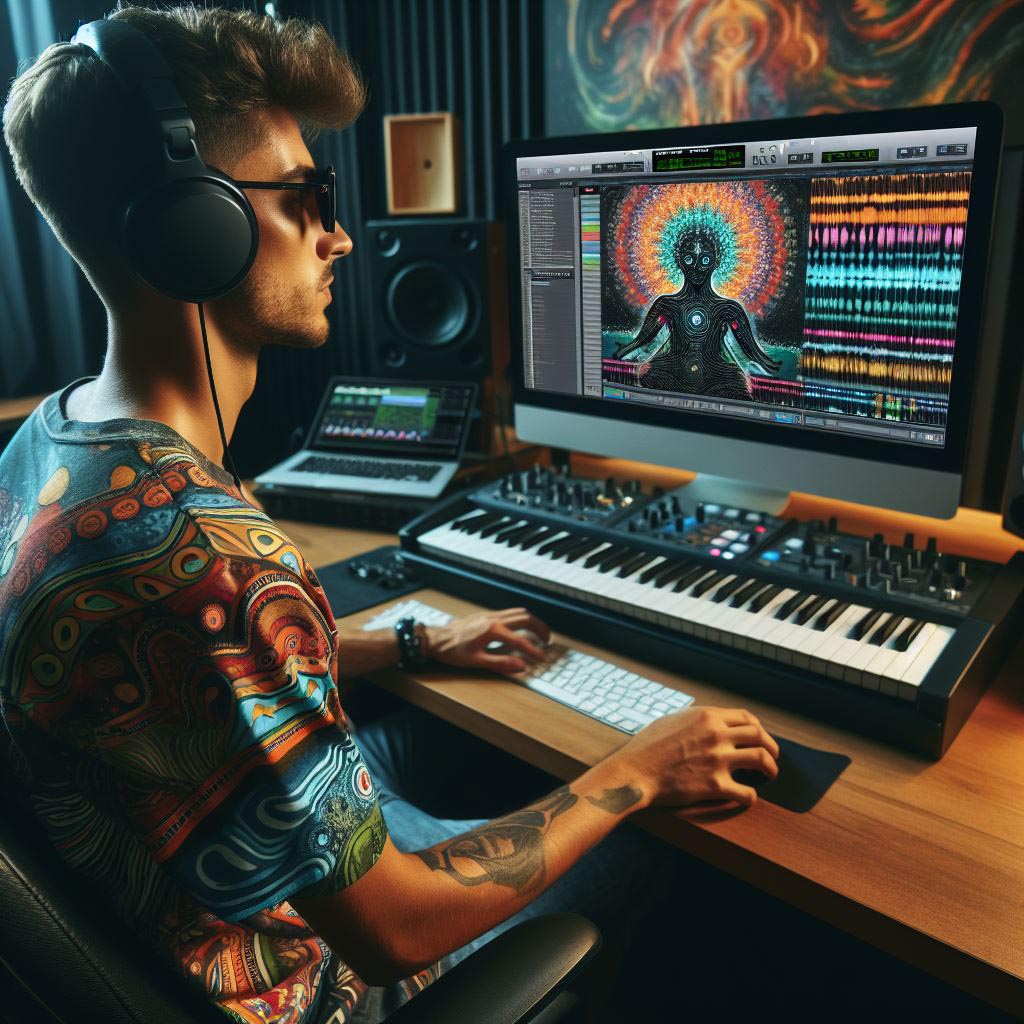At its core, psytrance composition involves crafting a sonic journey that builds tension and release, guiding listeners through immersive peaks and valleys. Composing with synthesizers, modulated basslines, and other electronic elements creates a dynamic and ever-evolving sonic landscape. Tempo fluctuations and unexpected twists contribute to the genre’s unpredictability, keeping the audience engaged and eager for the next sonic revelation.
Remixing

Remixing a track is an art form that involves reinterpreting and modifying an existing piece of music to create a new and distinctive version. This process allows artists and producers to infuse their creativity, bringing fresh perspectives and innovative elements to the original composition. Remixes can range from subtle rearrangements to radical transformations, showcasing the remixer’s unique style and vision.
New life to a track
One of the primary objectives of remixing is to breathe new life into a song, making it appealing to different audiences or fitting diverse contexts such as dance floors, radio airplay, or film soundtracks. Artists often collaborate with remixers to explore alternative genres, tempos, or instrumentation, leading to unexpected and exciting results.
Remixing involves a blend of technical skills and artistic intuition. Remixers utilize digital audio workstations (DAWs), applying techniques like time-stretching, pitch-shifting, and sampling to manipulate the original elements. This process demands a deep understanding of music theory, sound design, and production techniques to maintain a balance between innovation and the preservation of the essence of the original track.
Remix culture has become integral to the music industry, fostering collaboration, cross-genre exploration, and audience engagement. Well-executed remixes can garner attention, expanding the reach of the original work and providing a platform for emerging talents. Ultimately, remixing is a dynamic and evolving practice that reflects the ever-changing landscape of musical expression and technological possibilities in the contemporary music scene.
Shadow Producer

The term “shadow music producer” refers to a producer who operates behind the scenes, often without being publicly credited, while playing a pivotal role in the creation and success of musical projects. These producers choose to remain in the shadows, focusing on their craft and contributing their skills to elevate the work of artists without seeking the spotlight themselves.
Collaboration
Shadow music producers may collaborate with well-known artists, offering their expertise in areas such as composition, arrangement, and sound engineering. Their influence extends beyond the studio, impacting the overall sound and direction of a project. Despite their crucial role, these producers might intentionally keep a low profile, allowing the artists they work with to take center stage.
A desire for privacy
The decision to be a shadow music producer can stem from a desire for privacy, a preference for creative collaboration over public recognition, or a dedication to the art of music production itself. This approach allows them to work across genres and with various artists, contributing to a diverse range of musical styles.
While the mainstream music industry often highlights performers and vocalists, the shadow music producer thrives in the background, contributing to the sonic landscape of countless songs and albums. Their influence, though subtle, is a testament to the collaborative and multifaceted nature of the music-making process, demonstrating that creative success can be achieved both in and out of the limelight.
